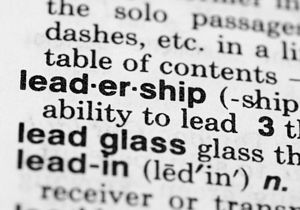Setting Professional Licensing Standards - Should We ?
/
Perhaps you've seen the news, bills in Georgia and Texas are the latest legislation that has been introduced relating to personal trainer licensing.This, along with other pending legislative initiatives, are opposed by IHRSA, which said in a recent statement regarding one of the bills, "“The legislation, SB 695, would be extremely detrimental to the industry and would have the dual effect of reducing the number of personal trainers and group exercise instructors and the number of consumers who are able to use their services to pursue healthier lifestyles." Really ? So is the answer to battle each legisltative issue state by state and assume there should NOT be a minimum standard ? (see follow up post from Helen Drukin below cliarfying IHRSA position).
This morning I read an article by Elaine Platt, owner of Smart Workout, titled "We Need To Set The Standard For Licensing Legislation". In the article Elaine writes:
From what I’ve read, it appears that the umbrella organizations of our industry are against requiring licensing. It is from this position that I respectfully dissent. I believe that licensing is much needed and would be positive for the industry. I implore these organizations to re-deploy their lobbying efforts. Instead of trying to defeat this legislation, they should endeavor to ensure their own participation in the licensing process. Our industry organizations should work with legislators to formulate legislation providing that certifications from agencies recommended by them would become the criteria for obtaining a license. States don’t know how to measure competency in the fitness field. They need industry groups to provide them with standards.
Isn't Elain right ? How can we move the fitness industry forward to become a meaningful solution to the sick care crisis without uniform minimal certification standards ? Do you think doctors are going to be comfotrable referring their patients to facilities without standards ? Many of the industrialized countries around the world have these requirements. As an article titled "Dangerous Personal Trainers pointed out in Women's Health:
Trainers don't need to meet any federal or state requirements. Even the woman who waxes your upper lip may have had more training--and she is certainly subject to more legal oversight--than the one who pushes your cardiovascular, muscular, and nervous systems; jacks up your heart rate and blood pressure; and strains your joints and ligaments.
Why do you think organization's like IHRSA oppose minimum fitness trainer certification standards ? Please write me Bryan O'Rourke, and share your views. What's keeping the fitness industry from helping to create a solution to this problem and elevate the industry ? What do you think ?
About the author:
Bryan O’Rourke is a health club industry expert, technologist, financier, and shareholder and executive in several fitness companies. He consults with global brands, serves as a member of the GGFA Think Tank is Chair of the Medical Fitness Association’s Education Committee, is President of the Fitness Industry Technology Council and a partner in Fitmarc, Integerus, Fitsomo and the Flywheel Group. To learn more contact Bryan here today .

I contacted Helen Durkin, JD, who is Executive VP of Public Policy at the International Health Racquet and Sport Club Association. She kindly took a moment to clarify IHRSA's position.
Hi Bryan,
The Club Industry article is a bit misleading. Most of the legislation mentioned in the article was just bad legislation. The worse for example is NJ which would have create one private company in NJ that would be the only company that could do the training for personal training. It was our believe that it would it would effectively kill the personal training industry in NJ.
Here is the Board position on personal training
IHRSA recommends that clubs hire personal trainers who hold either a current certification from a certifying body that is accredited by the National Commission for Certifying Agencies (NCCA) or have a training certificate or degree from an educational institution accredited by an organization recognized by the Council for Higher Education Accreditation or the U.S. Department of Education.
Before coming to this position, the Board worked with a large group of personal training organizations over a couple of years to examine three different models for personal training regulation. The third party certification method captured in the language above. This is the same basic model we use for lawyers in the US. (An example close to home.) This is the same kind of model that is going on with the health club facility standards being developed by NSF.
IHRSA isn't apposed to all legislation. We support legislation in Massachusetts, which would serve to establish minimum standards, protect against ill conceived licensure, and ensure that the first personal trainer law to go on the books in the country reflects our board position.
I also have to say on a personal level, after working with state government administering the consumer protection laws and other regulations on clubs, I don't believe that state governments would do a good job at licensing personal trainers. Bottomline, I think IHRSA does support standards for personal trainers, just not state licensing. I'm happy to discuss this if you would like.
Thanks for clarifying this point Helen.











